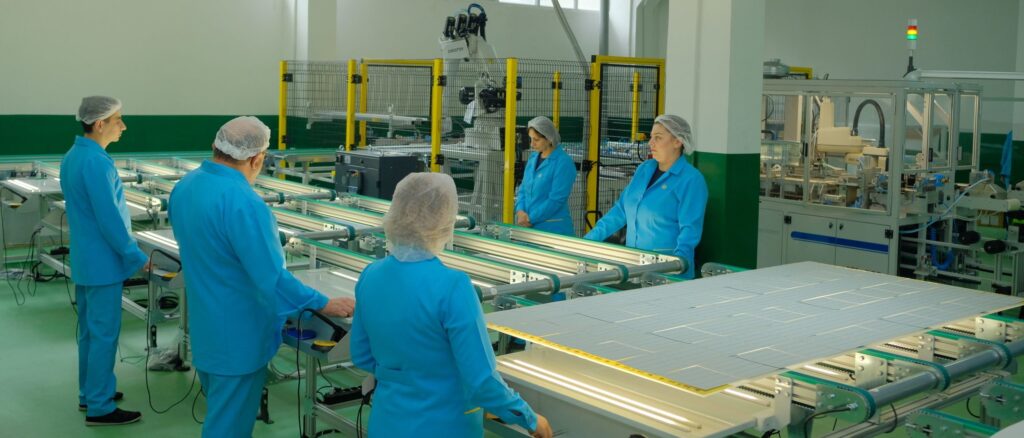American manufacturers are planning to reshore production from Asia back to the Americas ahead of President-elect Donald Trump’s return to office, seemingly in part due to his trade policy and global instability ushered in by the Biden administration.
Reshoring production signals a shift from relying on China toward sourcing more labor and materials in the U.S., creating a job surplus for Made-in-America manufacturing and a scramble for skilled workers in the U.S., according to the Wall Street Journal.
Japanese machinery-maker Kubota Tractor, IKEA and Lego are among the manufacturers planning reshoring or strategic onshoring moves, the WSJ reported. New semiconductor and electric vehicle battery manufacturing plants supported by federal grants are set to be established in Ohio, Nevada, Georgia, Idaho, Arizona, Texas, and other states over the next few years.
Some U.S. steelmakers have also expressed support for Trump’s tariff proposals, believing that the tariffs will bring about higher profit, an enhanced competitive edge, and job growth. (RELATED: Multi-Billion Dollar Shoe Company Speeds Up Shifting Production Out Of China Following Trump Victory)
A KPMG survey revealed that 76% of executives are prioritizing reshoring in the coming years. However, one hurdle for a manufacturing comeback during the Trump administration could be getting young Americans interested in the jobs.
“My biggest concern as we continue to reshore business is, who’s going to do the work?” Craig Jones, the chief executive of Jones Plastic & Engineering, told WSJ.
Jones’s Louisville, Kentucky-headquartered family-run plastics company is among many manufacturers that are reportedly struggling to find additional skilled workers.
About 13 million people currently work in U.S. factories, according to WSJ. Roughly 65% of American manufacturers struggled to secure talent, about 100,000 positions went unfilled each month for most of 2024, and about 1.9 million of the 3.8 million manufacturing job openings between 2024 and 2033 could go unfilled, a National Association of Manufacturers (NAM) survey cited by the outlet revealed.
Many manufacturers face a shortage of skilled workers as more Baby Boomers retire. They also struggle with the ingrained thinking among young potential talent that manufacturing jobs are dirty and unskilled, despite the industry’s increasing tilt towards clean, sophisticated manufacturing, and skilled workers, the outlet reported.
“Everyone wants to understand how to attract young people because it’s a struggle,” Stacy McCoy, vice president of research at industrial staffing firm, Employbridge, told the outlet.
The struggle is prompting some carmakers to bring back highly-skilled retirees, McCoy added.
“They’re shaky, they’re flaky,” Jones’s son and chief operating officer Ryan, 39, told WSJ of many of the younger workers. “There’s not a lot of high percentage chances that they’re going to stick around.”


